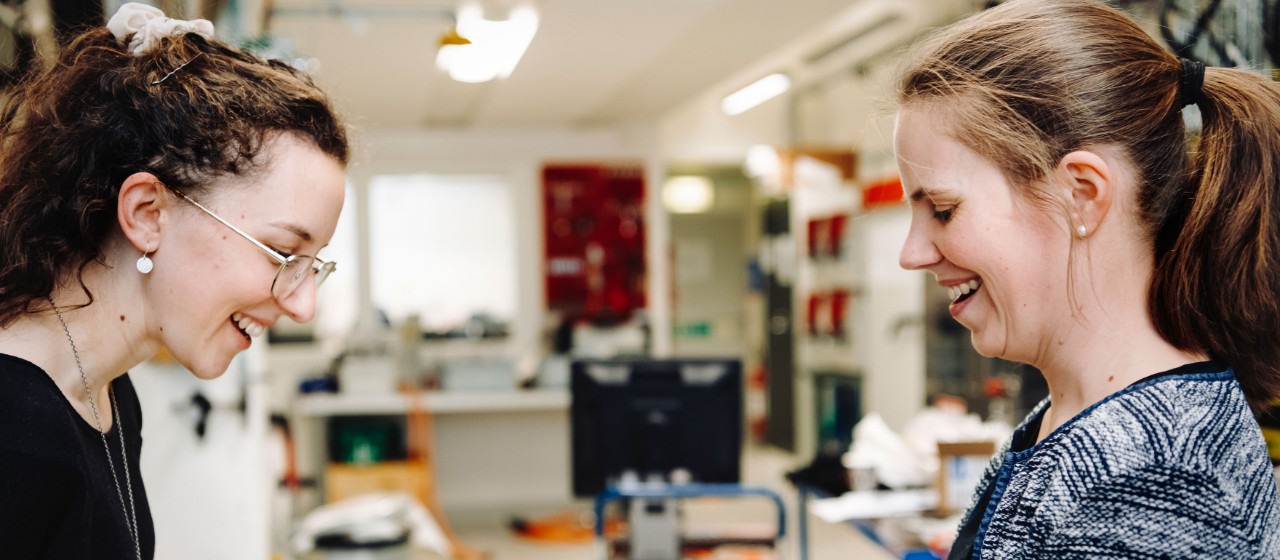
Meet Scania’s expert on battery cells and modules for electric vehicles
11 FEBRUARY 2019
Meet Verena Löfqvist Klass, an expert on battery health, and a leading light in Scania’s development of battery cells and modules for its electric vehicles.
Only a few electric vehicles were seen on the roads when Verena Löfqvist Klass started her PhD research on batteries in electric vehicles a decade ago. Today, with sustainability on everybody’s agenda, the number of battery-powered electric vehicles is growing quickly. As an expert in battery health, Löfqvist Klass’s work is going to be crucial for the next stage in the development of this revolutionary technology.
Löfqvist Klass is manager for the development of battery cells and modules for Scania’s hybrid and electric vehicles at Scania’s R&D centre in Södertälje, and she is convinced that the first job gave her the perfect start to her Scania life. She began her career at the company working as an engineer, simulating electric vehicles within product development. This allowed her to learn about the electric powertrain used in the company’s trucks and buses.
“I switched from focusing on just batteries during my PhD to making simulations with the whole truck in mind, focusing on hybrid and fully electric vehicles. We defined for example the demands for the cooling system by calculating the power losses. It is extremely important to gain knowledge of energy consumption and lifespan at an early stage,” she explains.
Moving to Sweden for research
But Löfqvist Klass could have ended up working somewhere completely different. Born in Nuernberg and raised in Wiesbaden, she began her studies at ETH Zürich in Switzerland, finishing with her Master thesis at Caltech in Pasadena, which has an impressive 39 Nobel Prize laureates to its name.
When she finished her studies, Löfqvist Klass was tempted by London but ultimately decided on Stockholm. “Other than having once hiked in Sweden, I hadn’t really had much contact with the country. But I’ve always loved Astrid Lindgren and, as a child, Saltkråkan was my favourite. So, I knew what I was signing up for,” she says, smiling.
With a background in research on fuel cells long before the technology was in fashion, she plumped for KTH Royal Institute of Technology and the department of Applied Electrochemistry.
At KTH, Löfqvist Klass carried out research on how well lithium-ion batteries could perform in electric vehicles. Scania employed her before she even defended her thesis. Explaining her decision to come to Scania, she says, “The battery community in Sweden is rather small. I wanted to continue working with electric vehicles since I truly believe in a future with a sustainable transport system.”
Combining research and leadership
After her first job as an engineer, she started at the research department, doing what she loves. Right away, her manager asked what her ideas for research might be. “It was pure joy to see that kind of trust in me right from the start,” she says.
The project that she suggested on battery control soon became a reality. It was easy to gain support for this research since the benefit to the customer is obvious. Löfqvist Klass was able to set up her own project team and find an academic partner through KTH. After just a few months, the team received external research funds from Fordonsstrategisk Forskning och Innovation (FFI), Sweden’s Strategic Vehicle Research and Innovation body.
Not only did she do research, but as a mother of two, her working days as well as her spare time were truly hectic. Handling that well, Löfqvist Klass’s work and her leadership potential led to her being given her current job as responsible for the development of battery cells at Scania, as well as the battery test lab.
A different kind of everyday life
Nowadays, our battery doctor’s working days are totally different. Before, when doing research, they were all about thinking and writing. Now, she’s ensuring that what her team does has the right direction. “I meet many people within Scania, but I also see how the cooperation within TRATON is increasing regarding work relating to batteries.”
But Löfqvist Klass hasn’t let go of the research just yet, despite her responsibilities as a manager. It is simply too much fun. She is still responsible for PhD student Malin Andersson, who works in the project that Löfqvist Klass herself started. The results of the research are still a few years away. But since she is passionate about it, secure in the knowledge that the results will be of great benefit to the company’s shift towards sustainable transport, she doesn’t mind.
“How we choose to work with batteries is crucial for Scania’s competitiveness,” she says. “I have chosen the right path for me. With my knowledge about batteries, I hope to make a difference to Scania’s future!”